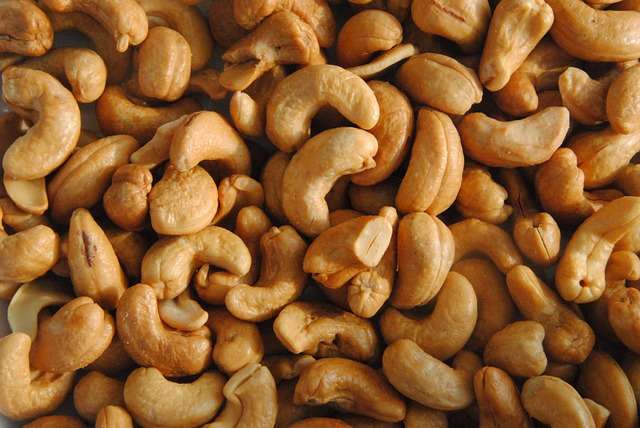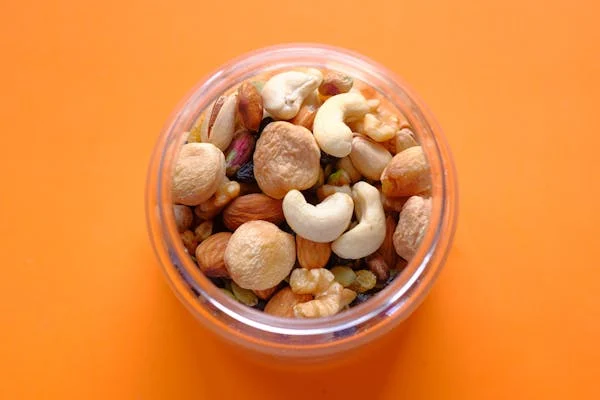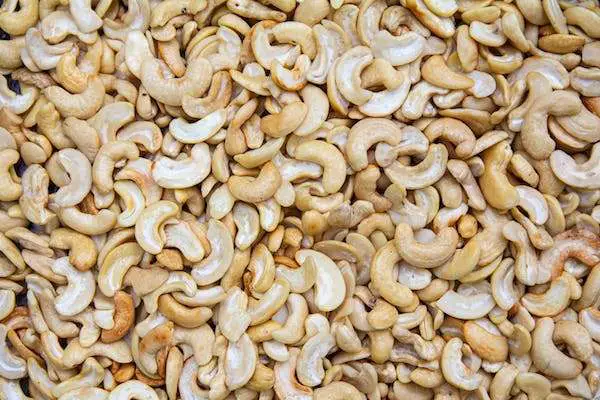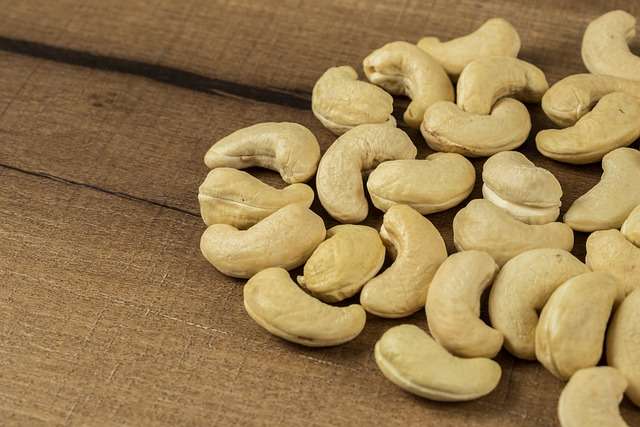Cashew nuts, with their rich and creamy taste, have become a beloved snack for people around the world. Beyond their delicious flavor, these nuts pack a nutritional punch that offers various health benefits.

Whether you enjoy them as a standalone snack, sprinkle them on salads, or use them in cooking, understanding the nutrition facts of cashew nuts can help you make informed dietary choices. In this article, we’ll delve into the intriguing world of cashew nut nutrition, uncovering the valuable elements that make this nut a nutritious delight.
1. Introduction
Cashew nuts, scientifically known as Anacardium occidentale, are native to Brazil but are now grown in various tropical regions worldwide. Their kidney-shaped appearance and distinctive taste make them a popular choice for both snacking and cooking.
2. Nutrition Facts of Cashew Nuts
Cashew nuts are a nutrient-dense snack, containing a balance of healthy fats, protein, and carbohydrates. A 1-ounce (28-gram) serving of cashew nuts provides approximately:
-
Calories: 157
-
Protein: 5 grams
-
Carbohydrates: 9 grams
-
Dietary Fiber: 1 gram
-
Total Fat: 12 grams
-
Monounsaturated Fat: 8 grams
-
Saturated Fat: 2 grams
3. Vitamins and Minerals in Cashew Nuts
Cashew nuts are brimming with essential vitamins and minerals, including:
-
Vitamin E: Antioxidants are important for maintaining healthy skin
-
Magnesium: Important for muscle function and energy production.

-
Phosphorus: Vital for bone and teeth health.
-
Copper: Aids in iron absorption and overall immune function.
-
Zinc: Supports the immune system and wound healing.
4. Health Benefits of Cashew Nuts
4.1 Heart Health
The healthy fats in cashew nuts, primarily monounsaturated fats and oleic acid, contribute to heart health. They may contribute to lowering LDL cholesterol and reducing the risk of heart disease.

4.2 Weight Management
Despite their relatively high-fat content, cashew nuts can aid in weight management due to their protein and fiber content. These nutrients promote satiety and curb overeating.
4.3 Bone Health
Cashew nuts contain phosphorus, magnesium, and copper, all of which contribute to maintaining strong and healthy bones.
4.4 Improved Digestion
Dietary fiber in cashew nuts supports digestion by preventing constipation and promoting a healthy gut environment.
5. Incorporating Cashew Nuts into Your Diet
5.1 Snacking
Enjoy cashew nuts as a quick and satisfying snack between meals. Pair them with a piece of fruit for a balanced and energizing combination.

5.2 Culinary Uses
Add a delightful crunch to your dishes by using cashew nuts in stir-fries, salads, and baked goods. Cashew butter is also a versatile spread and ingredient.
6. Potential Concerns and Allergies
While cashew nuts offer numerous benefits, some individuals may be allergic to them. Allergic reactions can range from mild to severe, making it crucial to exercise caution if you have nut allergies.
7. Buying and Storing Cashew Nuts
When purchasing cashew nuts, opt for unsalted varieties to control sodium intake. To maintain freshness, store them in a sealed container in a location that is cool and has low humidity.
8. Conclusion
Cashew nuts are more than just a delicious snack – they’re a powerhouse of nutrients that contribute to overall well-being. Their combination of healthy fats, protein, vitamins, and minerals makes them a valuable addition to any diet.
9. FAQs
Q1: Are cashew nuts suitable for vegetarians and vegans? A: Yes, cashew nuts are a popular source of protein and healthy fats for both vegetarians and vegans.
Q2: Can cashew nuts help lower cholesterol? A: Yes, the monounsaturated fats in cashews have been linked to reducing bad cholesterol levels.
Q3: Are there any cautions for individuals with kidney issues? A: Cashew nuts contain oxalates, which can contribute to kidney stones in susceptible individuals. Moderation is key.
Q4: How do cashews compare to other nuts in terms of calories? A: While cashews are calorically similar to almonds and walnuts, their nutritional profiles differ slightly.
Q5: Can cashew nuts be part of a weight loss diet? A: Yes, the protein and fiber content in cashews can support feelings of fullness and aid in weight management.
